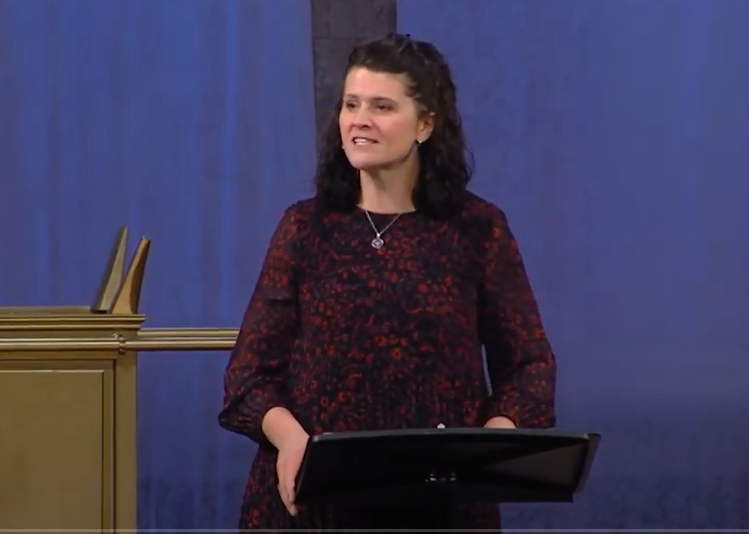
Sermon Link: https://www.youtube.com/watch?v=UakegCoey-M
Sermon Title: “Hearing Aides”
Preacher: Rev. Dr. Emily Vermilya is the Pastor of Operations and Development at College Wesleyan Church in Marion, Indiana
Here are a few (of the many) things in this sermon Dr. Vermilya does that are most worth emulating:
Introduce with Intrigue: “Simple messages all with the same goal: communicate the voice of God.” Vermilya begins by describing an advertisement campaign that swept the nation, then uses the phrase above, putting hearers off-balance. What advertisement campaign would aim to communicate the voice of God? That initial push off-balance will pique the congregation’s curiosity, and help Vermilya press into her topic with focused attention.
Pivot from Introduction: “I remember being uncomfortable with God’s voice being attributed to these quippy messages; discernment isn’t always necessarily obvious—it’s not a drive-by kind of thing… it requires a posturing and a faithfulness and a discipline in our daily habits and routines, so that if and when God chooses to speak, we are positioned to hear him and understand his language.” With this paragraph, Vermilya transitions from the introduction, recaps the previous weeks in the series, and deftly moves toward the central thesis of her sermon.
Ask with them: “What do we do when we have multiple good and godly options before us? How do we pick one and move forward, confidently asserting that this is the will of God? What do we do when we have multiple options and none of them are without flaw? Does discerning God’s will mean knowing without question?” Our congregations hear biblical texts through the lens of their own lives—we each bring their own inquiries, objections, and (if we’re honest, anger and uncertainty)—with us to the text. So Vermilya anticipates objections and questions, and uses this part of the sermon (quoted above) to help the community sift through the often challenging work of asking what discernment is not, while also wondering what God’s will is.
Use the Text as Outline: “If you have your Bibles open, look again at Acts chapter 16.” Vermilya uses the events of the text as the outline for her sermon; she proceeds from beginning to end of the sermon, following the movements of the Scripture passage her sermon was rooted in. Progressively unfolding the Scripture passage—with intrigue, movement, and life, as Vermilya does—can be an incredibly effective outline, yielding fresh insights for the congregation about how to approach Scripture in their own time with God.
Point toward discipleship: “Think now of the people who will serve in your life as a godly discerning community… I want you to see faces and names of people who walk beside you in life. Specifically, identify the people in your life who you’ve witnessed posturing themselves to hear from God, and who have experienced his leading in the past.”
“Are these people who only want to speak into the situation, or who will help you listen, and then help you be obedient to where he’s calling you to go?”
With these dual quotes, Vermilya makes it clear that the implications of this sermon cannot be fulfilled within the church walls that Sunday; this invitation from God will bleed into the way you approach your friends, mentors, and spiritual communities. The best sermons almost always reframe our way of engaging in our relationships (whether with God, ourselves, our possessions, and the people closest to us and different from us). And the very best sermons help us find a pathway toward the kind of community needed to help us align with God’s call in those relationships. Vermilya does just that.
© Ethan Linder